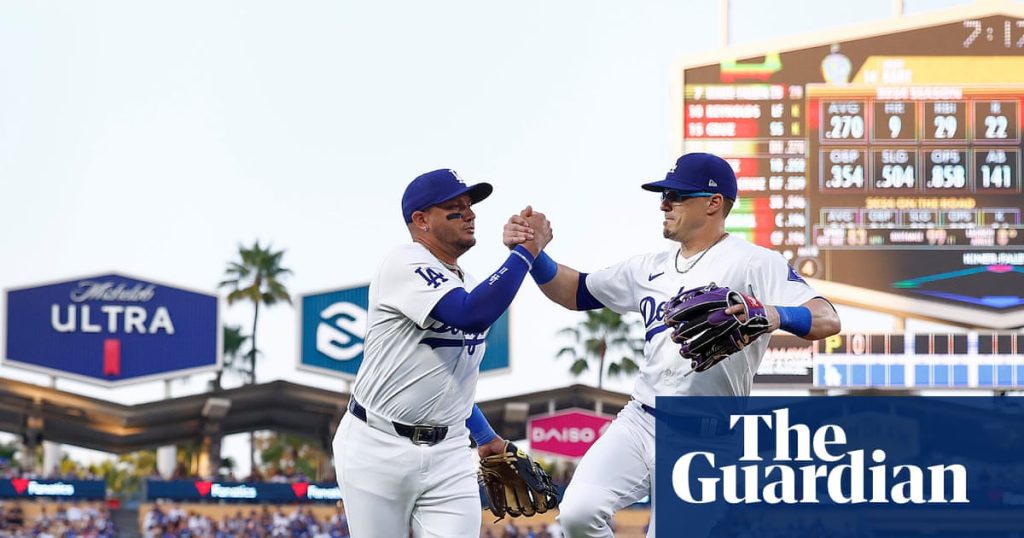Introduction
Natalia Molina, a devoted fan of the Los Angeles Dodgers and the granddaughter of Mexican Americans, found the pinnacle of this year’s World Series not in last Saturday’s thrilling finale, where the Dodgers triumphed over the Toronto Blue Jays after an intense extra inning. Instead, it was the previous game that captivated her—when bench players Kike Hernández from Puerto Rico and Miguel Rojas from Venezuela executed an electrifying game-winning play that challenged the negative stereotypes often used against Latinos.
A Moment of Pride
The dramatic play unfolded as Hernández dashed in from left field, retrieving a ball obscured by stadium lights, and launched it to second base for a crucial out just as Rojas was barreled into by a Blue Jays runner. This moment transcended sports; it was a much-needed boost for Latino pride amid a backdrop of negative imagery from the White House, particularly concerning immigration issues. Molina expressed how these players created a positive narrative for Latinos, showcasing pride, dynamism, and leadership.
Political and Cultural Impact
“Kike and Miggy send a powerful counter-narrative,” she noted, as their exuberance starkly contrasted against recent portrayals of Latinos facing immigration raids and discrimination. Among the fans filling Dodger Stadium, many are Latino, and the atmosphere of loyalty and camaraderie persists despite mixed feelings regarding the team’s political stance.
Team in Controversy
The Dodgers have navigated complicated waters regarding their relationship with the Latino community. While the team initially chose to remain apolitical, the Trump administration’s stringent immigration policies prompted other sports teams to voice support for immigrants—a stance the Dodgers did not take until later when they pledged funding for affected families.
Ownership Complications
The Dodgers’ ownership by Guggenheim Partners adds another layer to this complexity. Critics highlight the corporation’s ties to private prisons, questioning the team’s silence on political issues. Latino fans experience a rollercoaster of emotions—while celebrating the Dodgers’ successes, they are often reminded of the deeper historical injustices tied to the team’s legacy in Los Angeles.
Community Connection
Despite these issues, many fans remain deeply connected to the team. Players like Hernández have expressed solidarity with the community, even publicly denouncing the ongoing ICE raids. This bond—with players who represent diverse backgrounds—creates an emotional connection for supporters who refuse to sever ties with the team they cherish.
Conclusion: Love for the Dodgers
Ultimately, for many Latino fans, the Dodgers symbolize a bridge to American identity. Molina articulated this sentiment, reflecting on the complexities of loyalty to a team intertwined with personal and communal histories. “What do you do when you feel something, and it’s complicated?” she asked, emphasizing that for many immigrants in LA, the Dodgers embody a deeply rooted connection to American culture.



